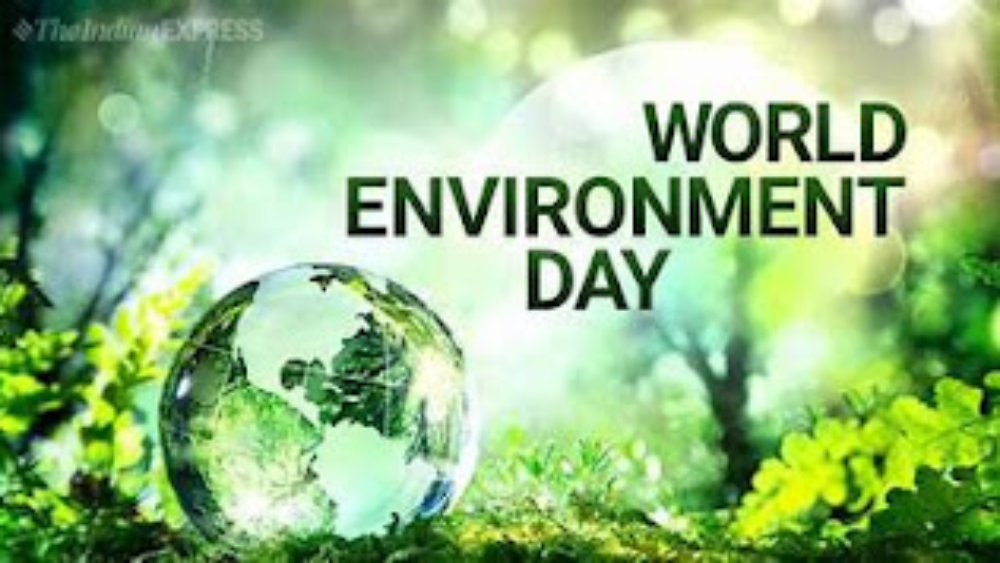World Environment Conference: Key Decisions

Environment Conference:
Important decisions have been made in the recent climate conference. The climate conference was a very important meeting in the global climate governance process. The results of the conference are in line with China’s concept of ecological civilization and its recommendations on promoting a green and low-carbon transition, and indicate the direction of the next phase of the global climate change process.
With the joint efforts of China and other countries, worldwide access and commercialization of renewable energy has become a reality. China’s efforts have reduced the production cost of photovoltaic power by 90 percent and the cost of wind power by 70 to 80 percent, and China has played a major role in promoting green and low-carbon development in the global response to climate change.
Pledge of the Country:
At the Climate Conference, 110 countries pledged to triple renewable energy. The countries of the world have come together to end environmental pollution. During the Environmental Conference COP 28, more than 110 countries have signed an agreement to triple the world’s renewable energy capacity by 2030. In the conference, 50 oil and gas producing companies have also announced to be carbon-free by 2050.
The carbon-free agreement includes the government companies of 29 countries including Saudi Arabia and the Emirates. The United States has promised to give 3 billion dollars for the Green Climate Fund at the COP 28 environmental conference. During the environmental conference organized by the United Nations, various agreements and promises have been made to deal with the global environmental crisis.
110 countries have also pledged to increase renewable energy production by 300%, these countries are determined to work together to bring global renewable energy production capacity to at least 11 gigawatts by the end of this decade. And 50 gas producing companies have also announced to be carbon free by 2050.
Saudi Arabia’s state-owned oil company Aramco and the United Arab Emirates’ ADNOC are among 29 state-owned companies that have signed a non-binding agreement to commit to zero methane emissions. 117 countries are signatories, and the expansion of wind, solar and other renewable energies is critical to the global goal of achieving net zero greenhouse gas emissions by 2050.
A tripling of renewable energy sends a very strong message to investors and financial markets that the world is moving towards this goal. The nearly 200 countries negotiating the COP28 climate agreement face tough negotiations ahead on the future of fossil fuels. The world can and must deal with this crisis. US will contribute $3 billion to Global Environment Fund.
This is the first fund pledged by the United States for developing countries after 2014. The last contribution to the fund for developing countries was made under then-President Barack Obama, who pledged $3 billion in 2014. The world’s largest climate fund for developing countries, solar in Pakistan provides grants and loans for panels or flood mitigation projects in Haiti.
The failure of rich countries to meet financial commitments to help developing countries deal with climate change has fueled tensions and mistrust at climate negotiations. Developing countries are the least responsible for climate change. They are seeking support from high-polluting countries to cope with the increasingly dire consequences of climate change and their transition to clean energy sources.
The World Environmental Conference, which started on November 30, ended on December 12, in which important decisions were taken to prevent environmental pollution. The care-taker Prime Minister of Pakistan also participated, in Pakistan, the residues left in the fields after harvesting wheat and rice can be made into mushrooms instead of burning in which there are numerous benefits for humans. By adopting numerous methods to make mushrooms in developed countries, the people there have been provided with vitamins and other essential health ingredients from mushrooms.
If we start an awareness campaign with help, we can prepare mushrooms for the people of the country from the crop residue and be safe from smog. But farmers must conduct awareness campaign to produce mushroom in this way.
Due to smog, the government has banned the burning of paddy straw. The farmer cannot cultivate the next crop without destroying the straw. Instead of burning the straw, it is possible to use it for other purposes. For this, if the government helps and guides the farmer, then this straw is a very useful thing. Many years ago, the rice factory owners were tired of rice husks, then When it started being used, it started selling. Mushroom production can be achieved through mulched straw but it requires proper guidance of the farmers.
